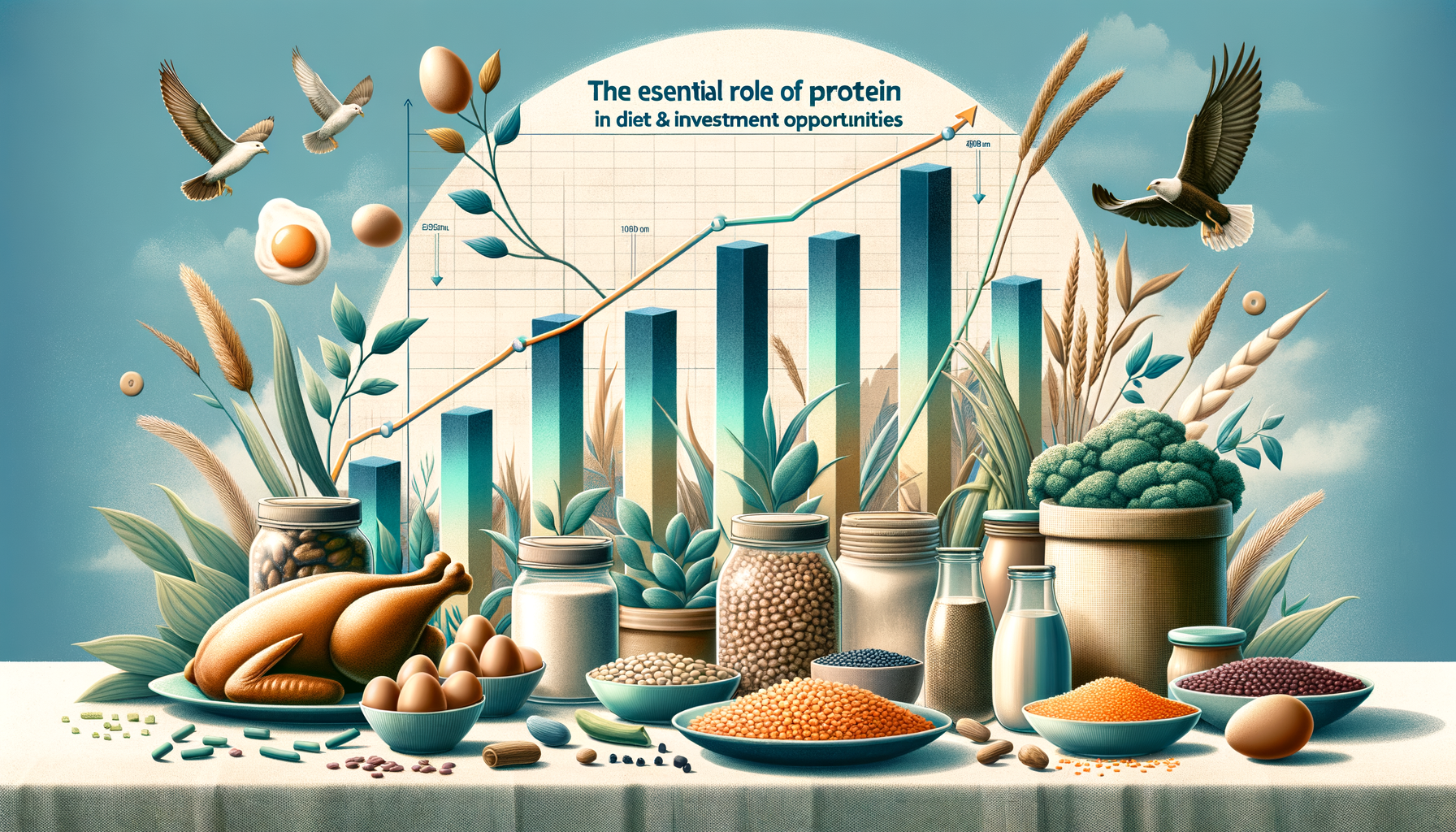The Essential Role of Protein in Diet and Investment Opportunities

The pivotal role of protein in our diets is well-documented, being a key contributor to energy, growth, and development, especially critical for children, teenagers, and pregnant women. This macronutrient doesn't just stop at providing energy; it is integral to the development of lean mass and is tied to better health outcomes and lower mortality. Protein, divided into amino acids upon digestion, varies in quality and digestibility based on its source, whether it's derived from animals or plants.
The Protein Source Debate
The long-standing debate over the superiority of animal versus plant protein has divided medical opinion. Animal proteins contain a complete profile of essential amino acids (EAAs) but their consumption has been linked, by some, to potential kidney issues. Conversely, plant proteins can furnish adequate nutrition when consumed in a diverse and well-balanced diet. Dr. Priyanka Rohatgi from Apollo Hospitals stresses that a well-chosen combination of plant-based foods can provide the necessary balance of amino acids, although animal protein is deemed 'A-class' in terms of quality.
For those with active lifestyles, a well-managed plant-based diet can suffice, but for ageing individuals, animal protein might be advantageous due to easier digestibility. Dr. Rohatgi and other experts recommend considering the quantity of protein consumption, particularly in plant-based diets, to meet daily requirements.
Role of Amino Acids
Amino acids, the building blocks of protein, not only support muscle and bone repair but also assist in producing essential hormones and enzymes and act as an energy source. The Recommended Dietary Allowance (RDA) for protein varies depending on several factors, including age and lifestyle, with a modest 0.8 grams per kilogram of body weight as the general guideline. However, lifestyle choices, including high-protein diets and regular exercise, can influence one's protein requirements.
Proteins, even from grains and cereals, can support muscle growth and weight management, although animal proteins are often preferred for their high content and favorable composition of amino acids.
Protein and Health Conditions
The debate extends to the impact of protein source on health conditions such as diabetes and kidney disease. Plant proteins have been criticized for low essential amino acid levels which could potentially affect insulin sensitivity. Some doctors recommend plant-based diets for kidney issues, yet Dr. Abdullah Saad Siddiqui points to the importance of animal protein in muscle health, particularly for diabetics or those at risk of diabetes.
Dietary suggestions vary widely, with no conclusive evidence that animal proteins aggravate kidney conditions except in advanced stages of kidney disease. Dr. Siddiqui advocates for animal protein in diets, dismissing claims against it as myth unsupported by solid science.
The Rise of Alternative Proteins
As the global demand for animal-sourced foods increases, the development of alternative or 'smart' proteins has been propelled by environmental concerns. Agricultural activities, particularly meat and dairy production, are responsible for a significant portion of greenhouse gas emissions and land use. However, the replacement of traditional protein sources with lab-produced alternatives raises questions about naturalness and health impacts. Dr. Siddiqui expresses skepticism about these 'smart proteins' and the risks associated with their consumption, favoring natural food sources.
protein, diet, investment